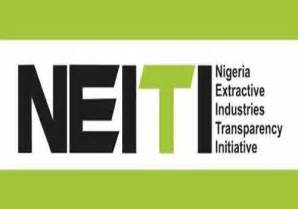FAAC Allocations: Delta Received N108bn, Osun N10bn In H1 2019

Delta State maintained the lead among states of the Federation with the highest share of the Federation Account Allocation Committee (FAAC) disbursements in the first half (H1) of 2019 with a total of N108.7billion, while Osun received the lowest amount of N10.09billion. The difference between these states’ revenue is N98.6billion.
Delta State was the fourth highest recipient of FAAC disbursements in H1 2017. However, the state had become the highest recipient in H1 2018 and 2019. The State received N41.66 billion in the first half of 2017 and surged to N101.19 billion in the first half of 2018, representing a 142.89% increase.
The information and data are contained in the latest edition of Nigeria Extractive Industries Transparency Initiative (NEITI) Quarterly Review, which examined FAAC Disbursements to the Federal, States and Local governments for the first half of 2019.
The publication further disclosed that “the amount received by the state (Delta) increased further in the first half of 2019 to N108.7 billion. Thus, in the first half of 2019, the disbursement received by Delta State was 7.42% higher than its receipt in the first half of 2018, and 160.92% higher than its receipt in the first half of 2017”. The NEITI Quarterly Review explained.
The Report further explained that monthly disbursements to states hovered a little above N200 billion. “For the first six months of 2019, disbursements to states were N223.67 billion in January, N230.66 billion in February and N220.87 billion in March, N218.08 billion in April, N214.41 billion in May, N228.04 billion in June”.
However, when the figures for 2019 were compared with those for 2018, it observed that nine states had their 2019 first half disbursements higher than 2018 first half disbursements. This represented 25% of the states. The states were Cross River, Delta, Ekiti and Imo. Others were Kano, Katsina, Plateau, Sokoto, and Zamfara. The degrees by which the 2019 disbursements exceeded the 2018 disbursements varied widely and ranged between N95.9 million and N7.5 billion, the Report disclosed.
The Report which revealed interesting pattern of wide disparities in disbursements received by states also noted that the disbursements by majority of the states (27 states) in the first half of 2019 were lower than disbursements in the first half of 2018. Thus, 75% of the states received higher revenue in the first half of 2018 than the first half of 2019.
For the 774 local governments of the Federation, N792 billion was received in the first half 2019, compared to N795 billion and N549 billion respectively in the first half of 2018 and in the first half of 2017. This implied that, ‘‘disbursements to local governments in the first half of 2019 were 0.4% below disbursements in the first half of 2018, and 44.11% higher than disbursements in the first half of 2017’’, the NEITI Quarterly Review stated.
The NEITI Quarterly Review is one of NEITI’s policy and advocacy instruments intended to provide timely information and data that could be used to support citizens’ engagement, advocacy, information sharing and enlightenment in the tracking of the use of extractive revenue for development purposes. This is in line with the agency’s mandate of ensuring that there is transparency and accountability in the utilization of extractive revenues by government.
The report also showed that a total of N3.84 trillion was shared by Federal, States, Local Governments and others between January and June this year.
A breakdown of the FAAC disbursement showed that the Federal Government received N1.599 trillion, the 36 states got N1.335 trillion while the 774 local governments shared N792 billion during the period under review.
From the NEITI publication the disbursements of N3.84 trillion by FAAC in the first half of this year were slightly lower than the N3.94 trillion disbursed by FAAC during the same period in 2018, but higher than the N2.78 trillion disbursed in the first half of 2017.
In addition, the total FAAC disbursements in second quarter of 2019 were the Lowest since the fourth quarter of 2017. “The quarterly FAAC disbursements from Q1 2013 to Q2 2019 reveals that the total disbursement of N1.913 trillion in the second quarter of 2019 was the lowest since the fourth quarter of 2017 when N1.700 trillion was disbursed. The figure shows that three quarters of 2018 had total disbursements above N2 trillion,” the report noted.
The NEITI Quarterly Review which combined new data for the 2019 second quarter with previously examined data for the 2019 first quarter showed that increase in revenues witnessed in the first half of 2018 and 2017 were not sustained in 2019, as revenues in first half of this year were slightly lower.
For instance, the N3.84 trillion shared in the first half of this year was 2.6% lower than the N3.946 trillion disbursed in the first half of last year and 37.8% higher than the N2.8 trillion disbursed in the first half of 2017.
The analysis, conducted using data obtained from the National Bureau of Statistics, Office of the Accountant General of the Federation and FAAC showed that, “in the first half of 2019, total disbursements to FG were N1.599 trillion. This amounted to 41.61% of the total amount disbursed over this period.
This amount was lower than the N1.652trillion disbursed in the first half of 2018 but higher than the N1.098 trillion disbursed in the first half of 2017. Thus, disbursements to FG in the first half of 2019 were 3.22% lower than disbursements in the first half of 2018 but 45.56% higher than disbursements in the first half of 2017”.
Similarly, total disbursements to state governments in the first half of 2019 were N1.335 trillion, compared to N1.375trillion and N923 billion in 2018 and 2017 respectively. This indicates that disbursement to states in the first half of 2019 was 2.9% lower than the first half of 2018 but 44.7% higher than the first half of 2017.





























